During my visit to Cape Town, I worked with Shark Spotters, a non-profit dedicated to shark safety, education, research, and conservation. While working with them, I learned about the four main sectors of this organization:
Safety
Shark Spotters has a mission of creating coexistence between people and sharks. To help achieve this, they have developed a shark spotting program – where people (spotters) survey popular beaches for shark activity from nearby mountains. I got to tour the shark spotting huts at the lookout points and see how the mountain and beach spotters work together to communicate conditions and instances of spotting sharks in the area. I also learned about the flag system on the beach and an environmentally friendly shark exclusion net used to create a swimming area.
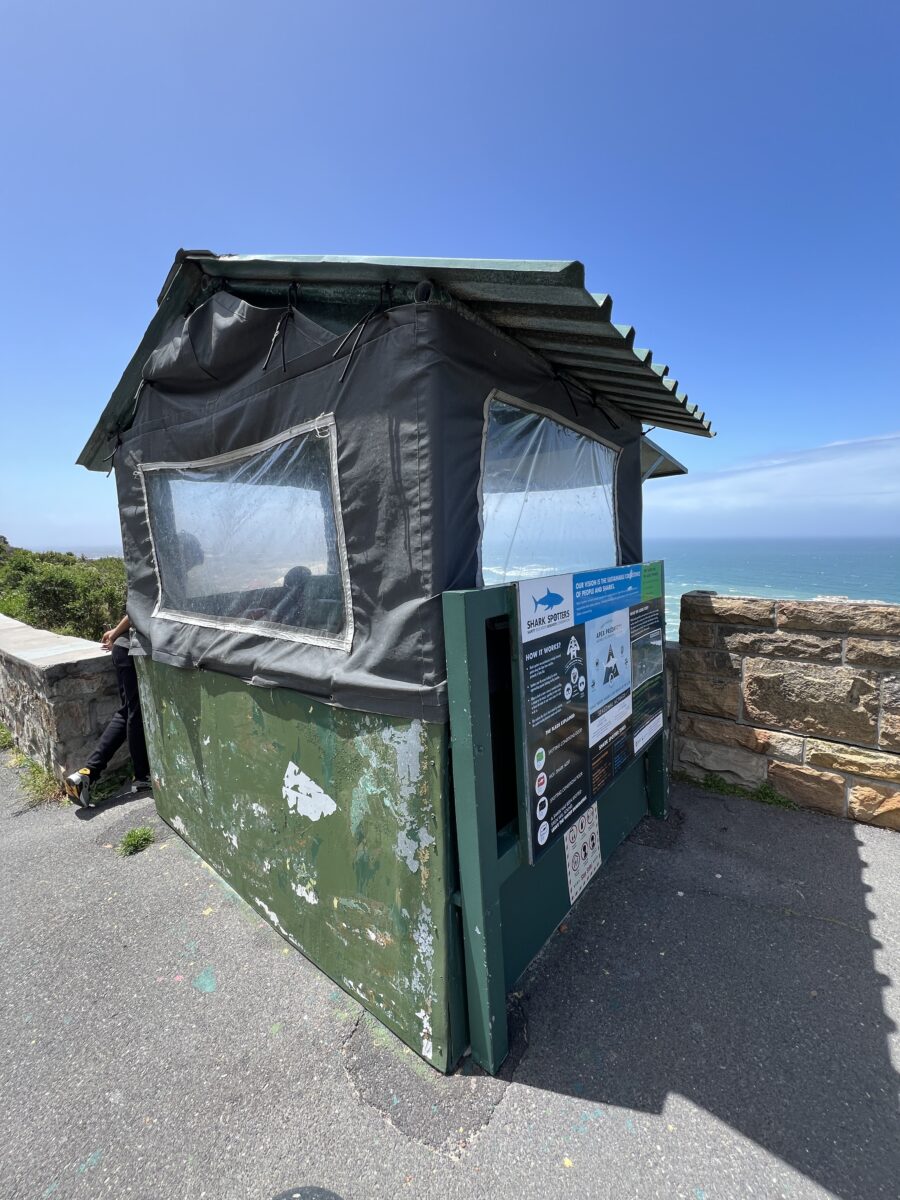
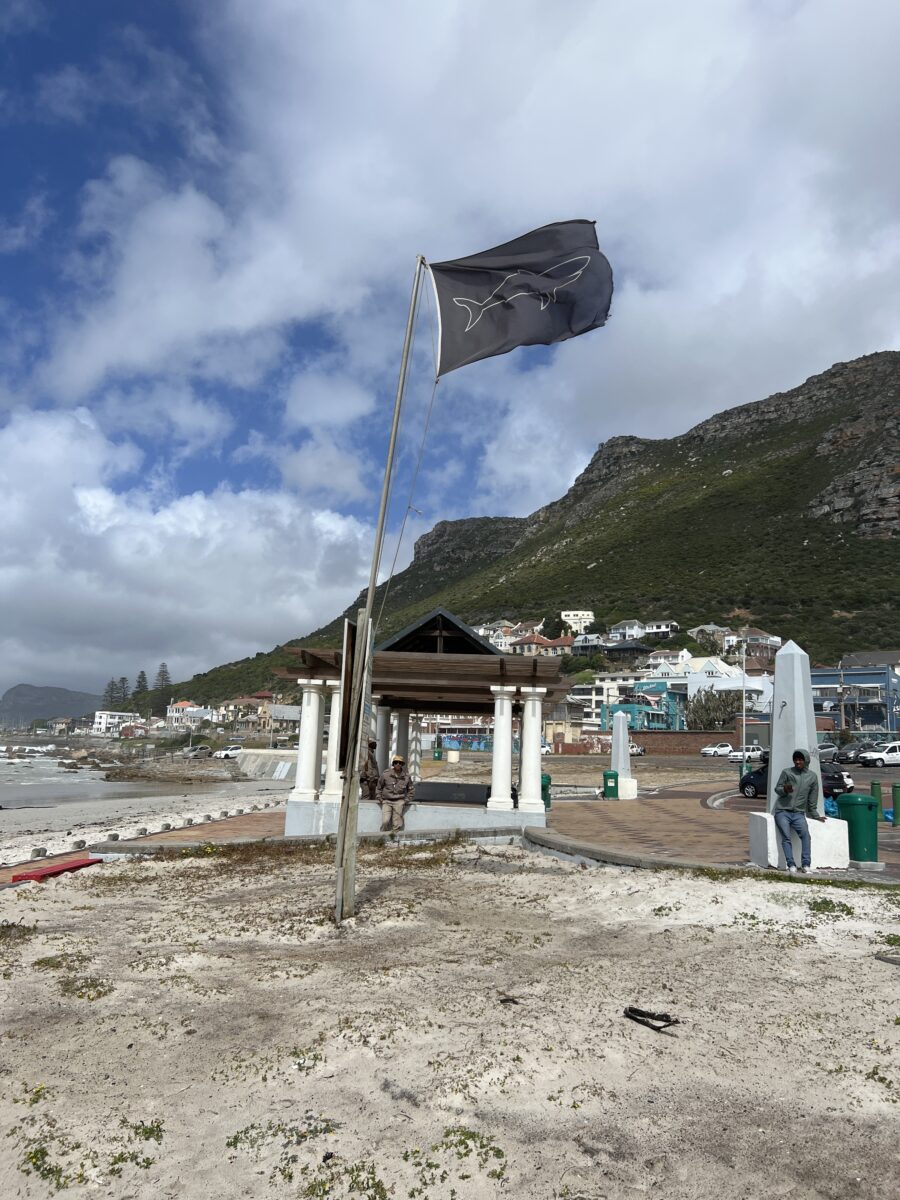
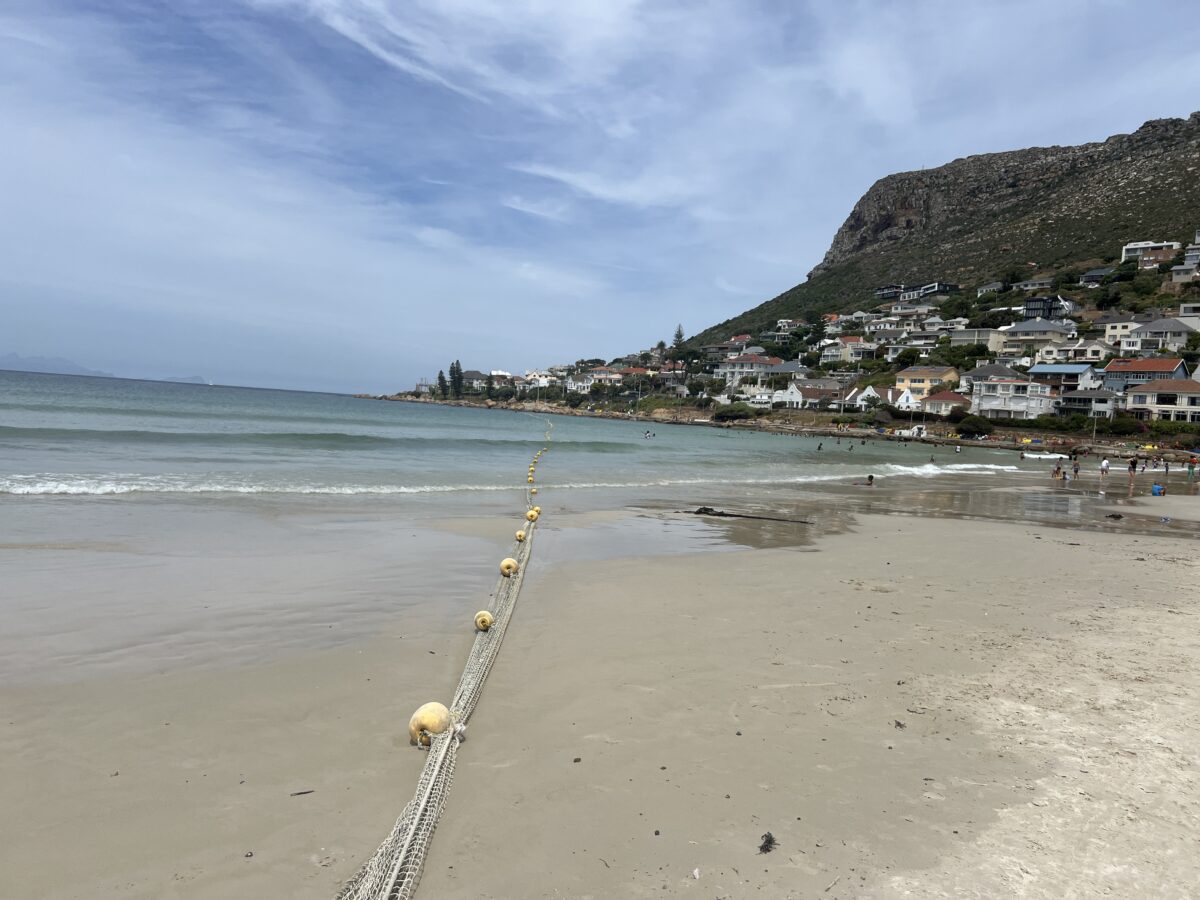
Education
An essential part of Sharks Spotters’ work is to engage the local community and educate about sharks and conservation. I joined an education pop-up to inform the community about what Shark Spotters does. The education team has developed fun games for kids to learn more about sharks. They also have shark specimens, including jaws, egg casings, and fins. Getting people to interact and have hands-on experiences can really engage the community to care about shark conservation and safety.
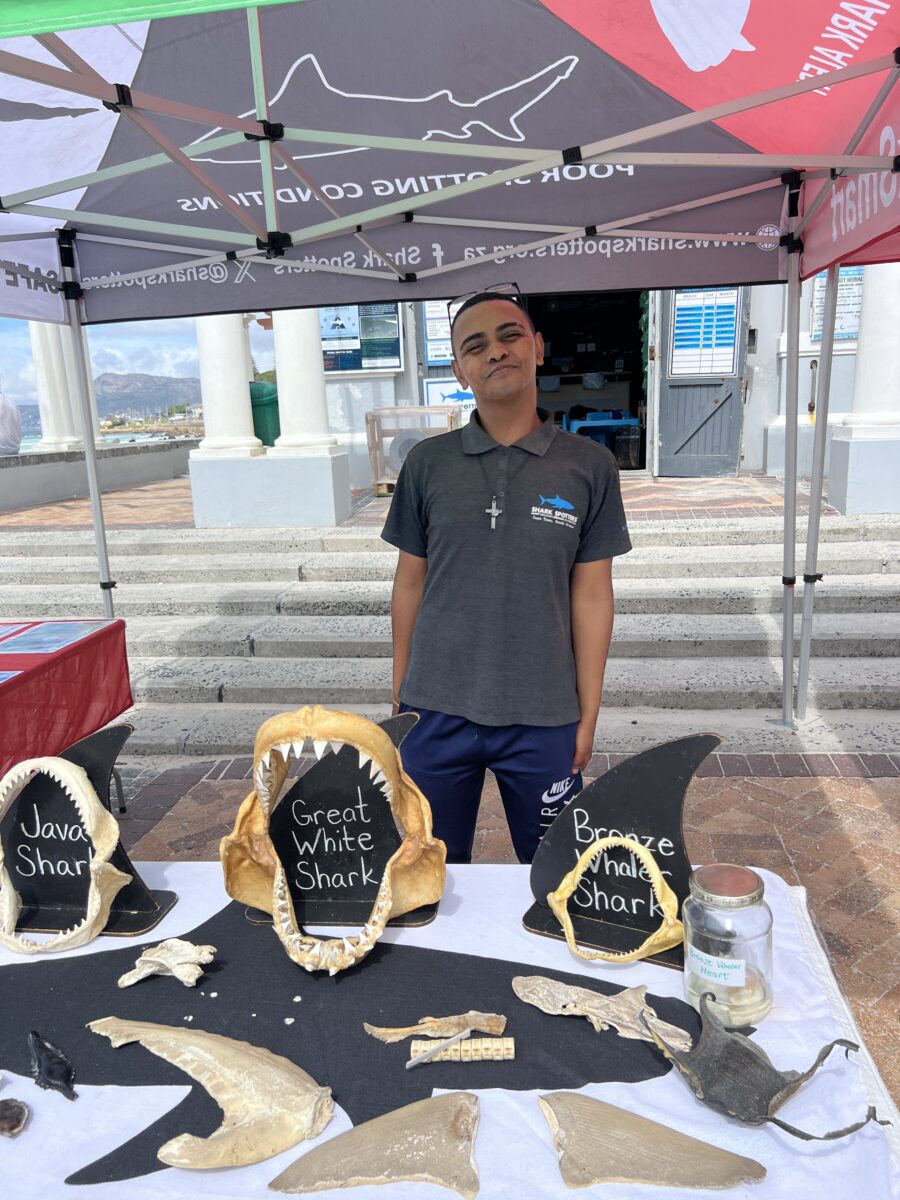
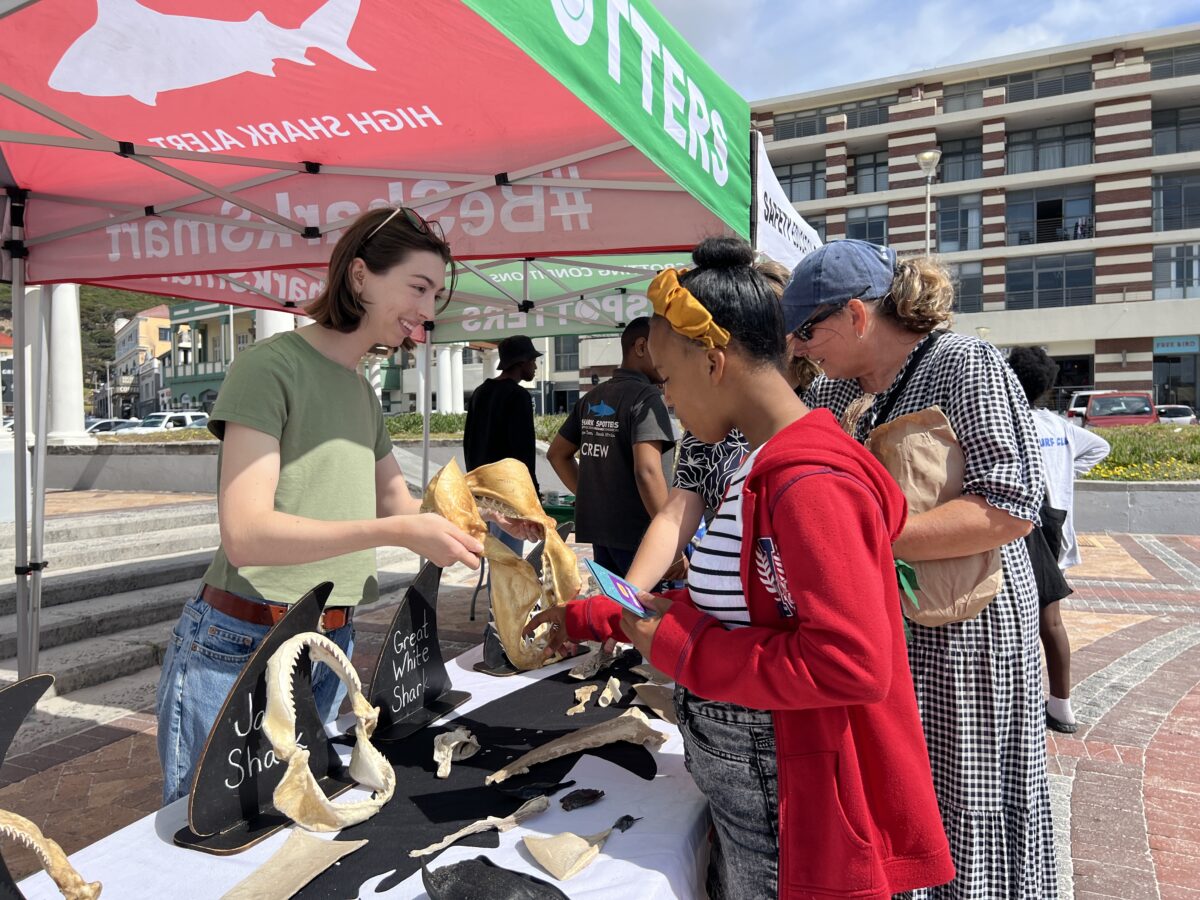
Research
One of my favorite experiences was working on preserving two shark jaws from specimens that were found deceased on nearby beaches. The first was from a mako shark that may have drowned during a strong storm. I learned the process to clean and preserve a jaw to be used for educational purposes. This was especially exciting because Shark Spotters has yet to have a mako shark jaw to share with the public.
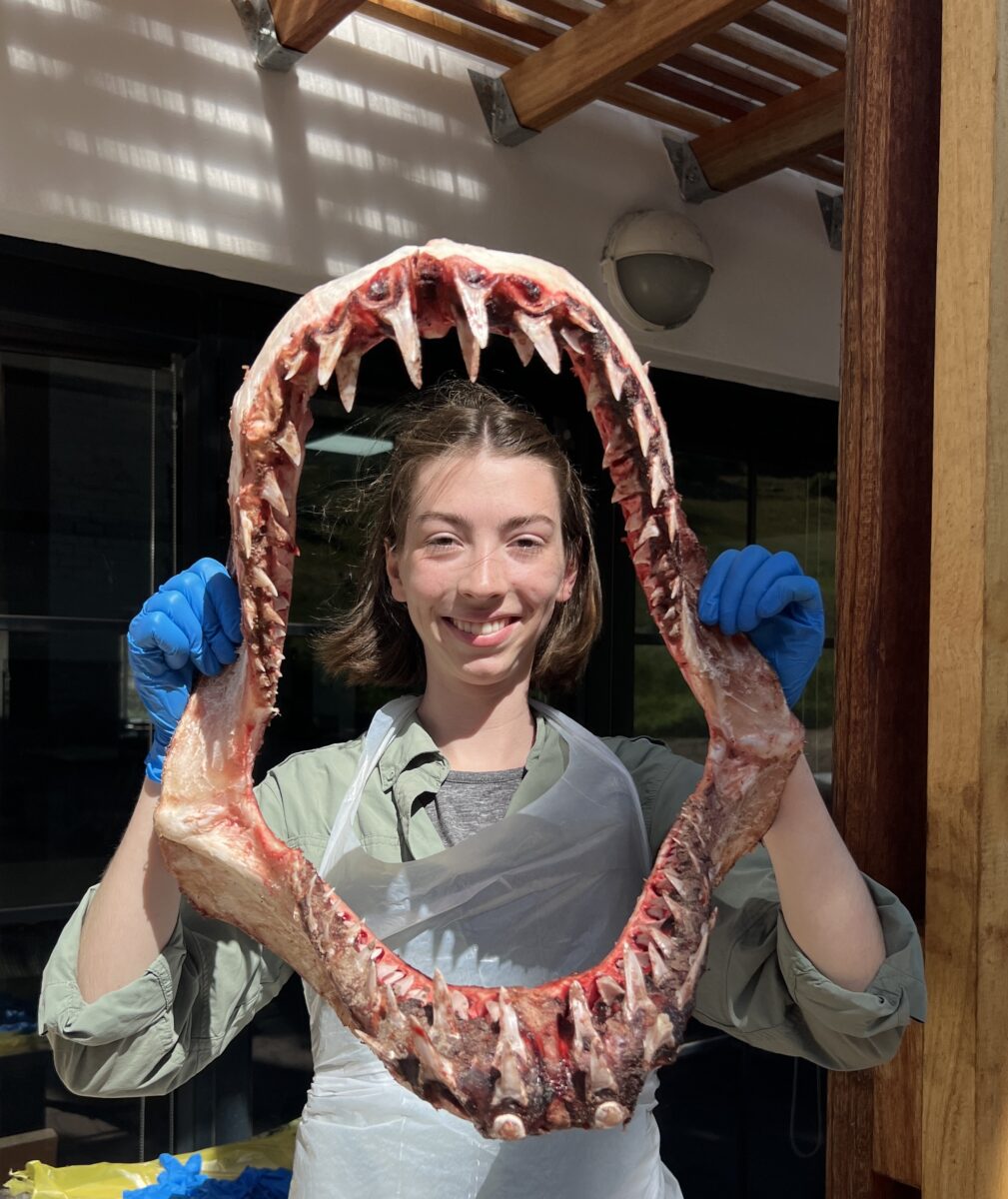

I also got to help start the work on a bronze whaler shark jaw. This shark was preyed upon by the resident orca duo, Port and Starboard, in October. I got to see the rake marks left by the orcas’ teeth which was so cool! While we worked on the jaw, I met Dr. Sara Andreotti, a white shark expert, who came to collect samples from these sharks for an eDNA project.
I also helped the research team input data from the shark spotting program. The shark spotters at each beach record data about shark sightings and conditions. Entering this data from the paper data sheets into a combined spreadsheet is really important so that trends in shark activity can be tracked over time.
Conservation
Implementing safety measures, educating and engaging the public, and researching sharks are ways the organization works toward their conservation efforts. Shark Spotters collaborates with the City of Cape Town, working to conserve the local tide pools. I got to help out with one of these tidal pool clean-ups to help the pools get ready for the summer season.
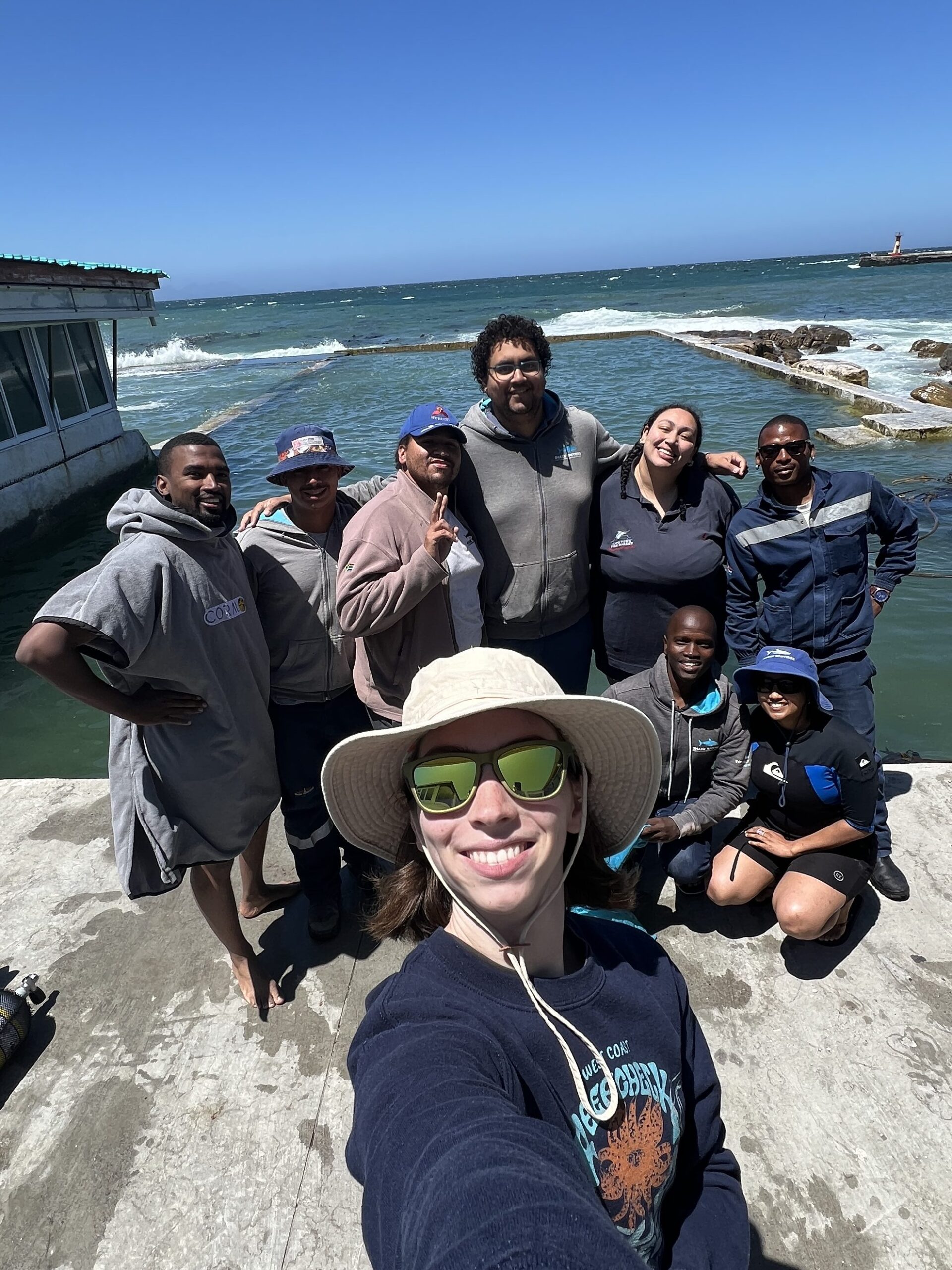
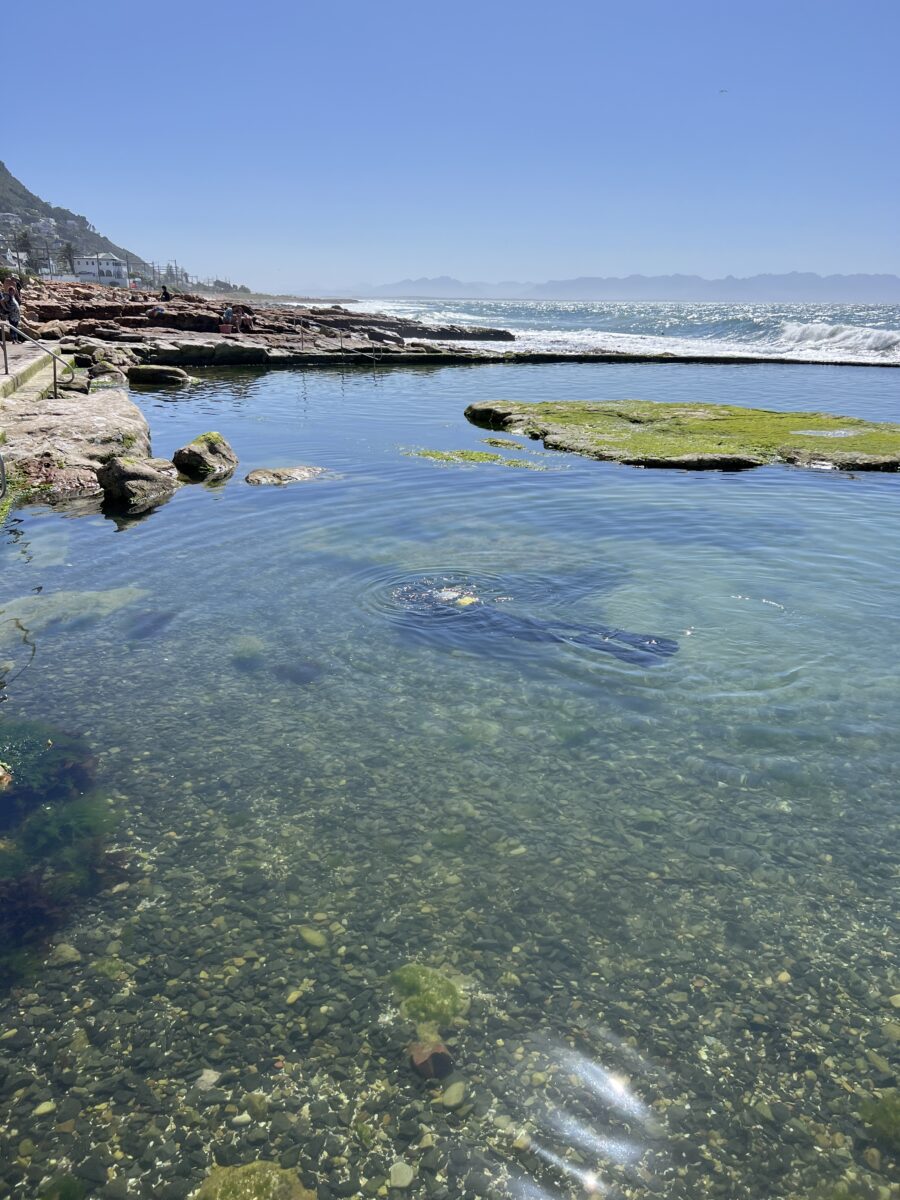
During the cleanup we also saw some cool marine life:
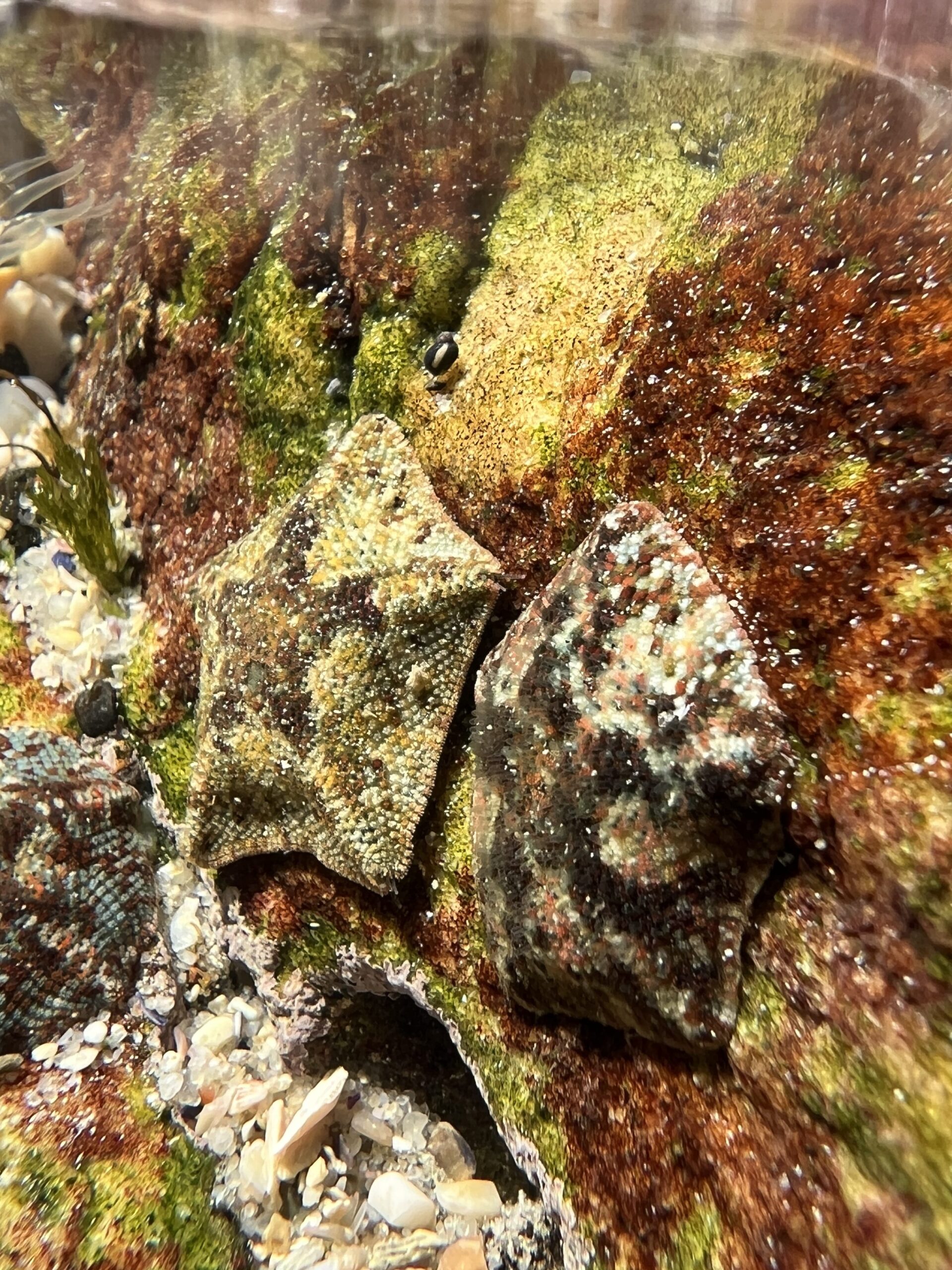
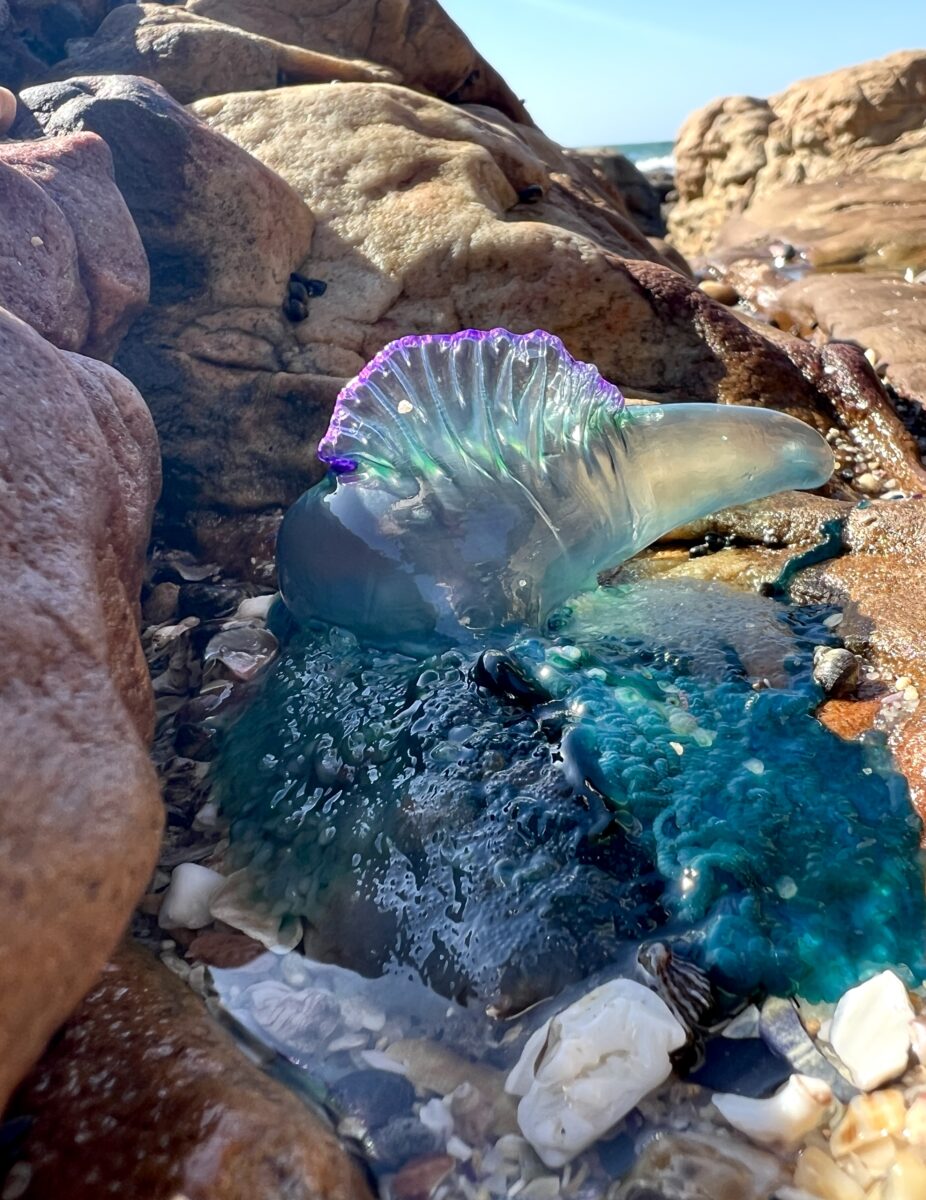
Portuguese man o’ war/bluebottle
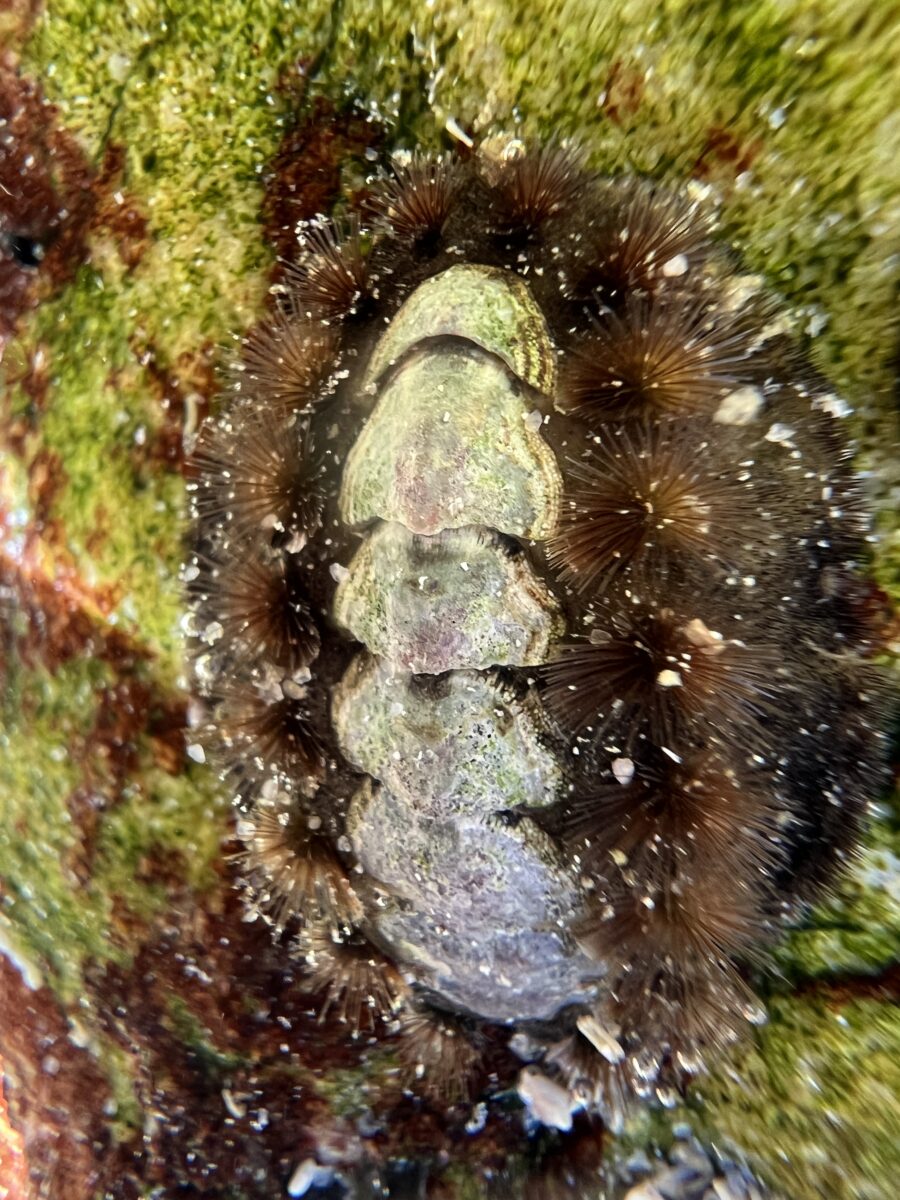
I learned so much during my time with Shark Spotters and got an inside perspective on how a non-profit organization engages in conservation and connecting communities. A huge thank you to the Shark Spotters team for having me!
Thank you to the Our World-Underwater Scholarship Society and our sponsor Rolex for making this scholarship experience possible. I would also like to thank Reef Photo and Video, Nauticam and Light and Motion for my underwater camera setup as well as Aqualung, Fourth Element, Suunto, Halcyon, and DUI for my diving equipment.